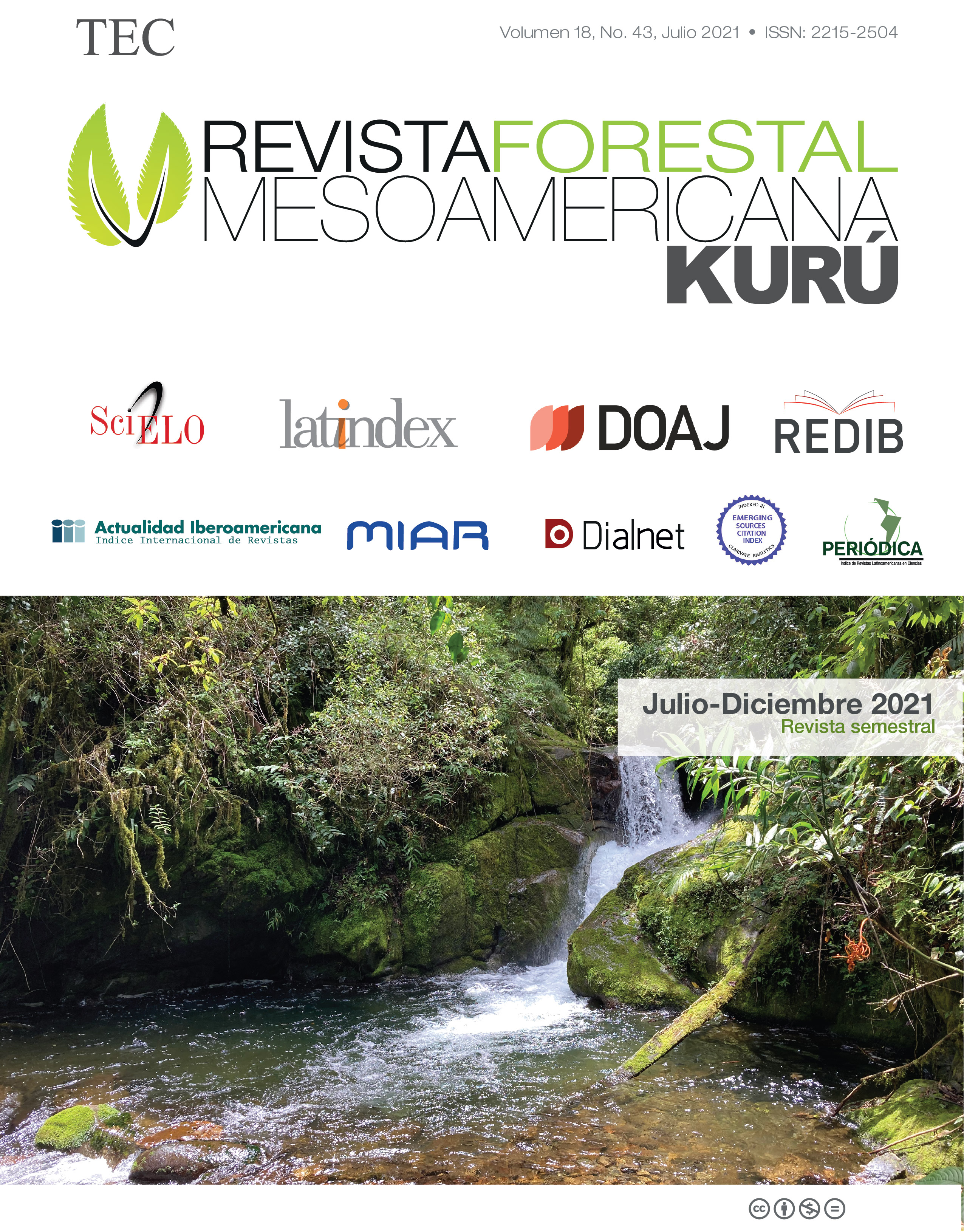Influence of tree size on the improvement of the urban microclimate in Viçosa-MG, Brasil
Main Article Content
Abstract
Urban tree planting planning is fundamental for the improvement of the urban microclimate and is therefore necessary in order to avoid various environmental problems. The general objective of this work was to evaluate the influence of the microclimate provided by the trees of different sizes and thus, to determine which provides a better performance in the thermal reduction and the increase of relative humidity. The study was carried out at the campus of the Federal University of Viçosa, in Viçosa-MG, Brazil. Twenty-seven trees were used, from nine different species, classified in three height sizes (small, medium and large). Data collection was carried out from August to September 2019, on clear or cloudless days, from 1:00 to 3:00 p.m., with monitoring intervals counted every 30 seconds, for 20 minutes for each tree. Results indicate that under the projected shade of the tree there is an approximate reduction of 4° C in the air temperature and an increase of 6.03 units of relative humidity, as well as an increase of 0.15 m/s in the wind speed. The shade projected by tree size (small, medium and large) showed a decrease in temperature (3.18°C, 4.19°C and 3.43°C), respectively, and an increase in relative humidity (5.30 units, 7.31 units and 5.52 units). The medium size species present a better result of the regulation of the microclimate, which represent an increase in relative humidity of 7.31 units and a decrease in temperature of 4.19 °C. Of all the species studied; the species Licania tomentosa presented the best results in the regulation of the microclimate in terms of comparison of temperature and relative humidity. For this reason, it was concluded that the medium-sized trees presented the best results in microclimatic improvement.
Article Details

This work is licensed under a Creative Commons Attribution-NonCommercial-NoDerivatives 4.0 International License.
Revista Forestal Mesoamericana Kurú is licensed under CC BY-NC-ND 4.0
Al enviar un artículo a la Revista Forestal Mesoamericana kurú (RFMK), los autores ceden los derechos patrimoniales a la editorial de la RFMK una vez su manuscrito haya sido aprobado para publicación, autorizando a la RFMK a editarlo, reproducirlo, distribuirlo, y publicarlo en formato físico y/o electrónico. La titularidad de los derechos morales sobre los trabajos objeto de esta cesión seguirá perteneciendo a los autores.

